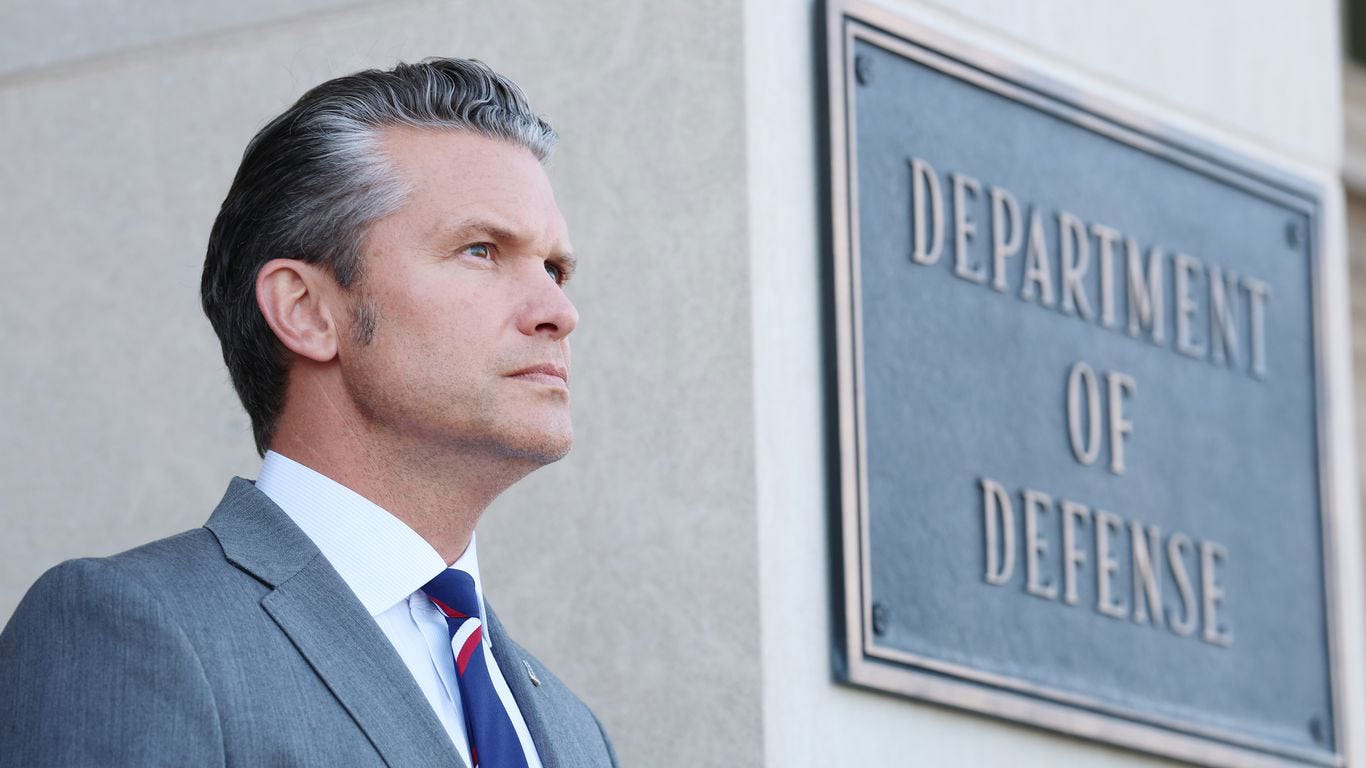The Generals’ Ordeal: Trump’s Theater of the Absurd at Quantico
Don and Pete Play Army and Boy was that Fun.
I knew it was going to be an odd meeting. With Trump and Hegseth, you brace yourself for the usual performance—the grievances, the culture war pageantry, the casual disregard for norms. But this? This was stranger than even their usual.
Hundreds of America’s most senior military officers—men and women who command nuclear submarines, manage global alliances, orchestrate strikes on Iranian nuclear facilities—ripped from actual deployments spanning three continents, at a cost of millions, to be lectured about facial hair and fitness standards by a former Fox News talking head whose principal qualification for running the Pentagon appears to be that he once spent twelve months in Iraq and can still do a respectable number of pull-ups.
The scene at Marine Corps Base Quantico on Tuesday was pure Trumpian theater, so detached from the actual business of national defense it would be comic if it weren’t so dangerous. There was Pete Hegseth, Defense Secretary and one-time National Guard major, dr…



